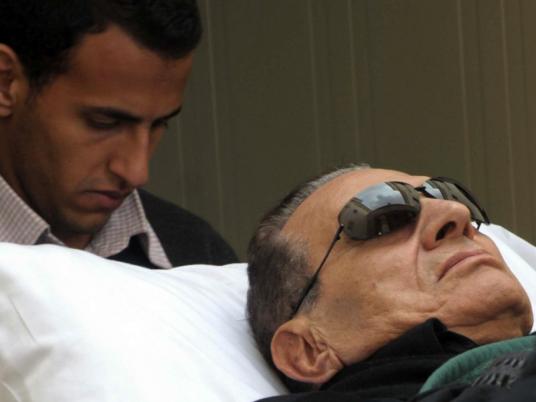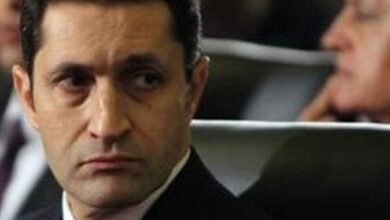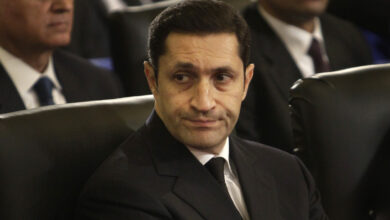
On Saturday, Judge Ahmed Refaat is set to deliver the court ruling against the man who ruled Egypt for over 30 years.
Former President Hosni Mubarak, his sons and other senior officials from his regime are expected to learn their fate on Saturday when the judge announces his rulings on charges of killing protesters and financial corruption.
Stretching for over nine months, the Mubarak trial has been dubbed the trial of the century. It has featured in-court clashes, high profile testimonies and the emergence of potential scapegoats.
Putting the case together
Because of the extraordinary security measures needed for the former president to appear in court, all the charges that he faces were put together in one trial.
Mubarak, along with his former Interior Minister Habib al-Adly and six senior officials, faces charges of killing protesters during the 18-day uprising that led to his ouster. Adly and his aides were initially tried in a different case before the judge decided to combine the two.
Mubarak, his two sons Alaa and Gamal and businessman Hussein Salem also face charges of bribery and abusing power for allegedly accepting five villas in Sharm el-Sheikh from Salem in return for selling state land at below-market prices.
Mubarak and Salem also face charges of squandering public funds in relation to the exporting of Egyptian gas to Israel which Salem’s company had been illegally assigned.
Key testimonies
The trial started with testimonies from some of the over 1,600 witnesses; most were policemen and eyewitnesses to the events.
The most incriminating testimonies came from officers who saw meetings between Adly and his senior aides in which Adly gave orders to use maximum force against protesters. Other witnesses claimed to have seen the distribution of weapons to police before protesters were killed.
Other witnesses that the prosecution had counted on changed their testimonies in court, denying that they witnessed wrongdoings, to the extent that the prosecution has formally charged one of them with giving false testimony.
When the prosecution called the head of the ruling military council Field Marshall Hussein Tantawi, military Chief of Staff Sami Anan, former head of the General Intelligence Services Omar Suleiman and former Interior Minister Mansour Essawy, the high profile testimonies were expected to settle the case.
However, most of these testimonies, on which a media ban was imposed, mainly consisted of the witnesses being unable to answer the questions. Lawyers who leaked Tantawi’s testimony said that he denied that Mubarak had ordered the military to open fire on protesters, despite the ruling military council’s repeated claims that they had refused to do so when ordered.
The case against the defendants
For a crime that has been caught on camera and watched worldwide, proving that the defendants were guilty of killing protesters was more difficult than imagined.
The prosecution has announced in court that state institutions were uncooperative with information. One officer was sentenced to two years for damaging evidence, and state institutions did not provide the required video evidence of the events.
The prosecution, which asked for the death sentence for Mubarak, mainly depended on officers’ testimonies while failing to provide concrete evidence proving that the orders to shoot came from Mubarak.
The sentences that policemen, the actual perpetrators accused of killing protesters, have received in past months show that the cases against protesters’ killers are weak. Many had been acquitted on the basis of self-defense and one policeman was sentenced to death, but ended up only receiving a five-year sentence in a retrial.
While legal experts say that separate trials don’t affect each other’s outcomes, the evidence becomes weaker higher up the chain of command, making the officers’ sentences an indication of the difficulty of proving the charges against more senior officials.
Mubarak’s defense
Mubarak’s defense team, headed by Farid al-Deeb, argued that the evidence against the officials is not enough to prove murder and that there was no evidence proving that Mubarak issued the orders.
Using every trick in the book to acquit his client, Deeb went as far as claiming at one point that Mubarak is still the president of Egypt and therefore can’t be tried. At another point, Deeb said that because Mubarak is a former military officer he should be tried in a military court.
Deeb also insisted that it was the military, not the Interior Ministry, that was in charge when protesters were killed.
He also depended on a law which allows the Interior Ministry to open fire on large groups that prove to be threats to general security. Experts, however, say that whether this argument holds up in court depends on the conviction of the judge regarding the peacefulness of the protesters.
An unknown verdict
Predicting the verdict in a criminal case is impossible since it ultimately depends on the judge, who can choose which evidence to rely on and how to interpret it. Refaat, the presiding judge in the Mubarak trial, is set to retire in June.
Legal experts say that it is unlikely that Mubarak will be given the death sentence due to the lack of strong evidence tying him to the killing. Some speculate that Adly or his aides, who have stronger evidence against them, could be sentenced to death as scapegoats.
As for Mubarak, the expectations vary from acquittal to a life sentence depending on the judge’s determination of his involvement in the decision to kill protesters.
Ahmed Mekky, a judge, says that proving that Mubarak knew about the killings and didn’t stop them is enough to convict him of murder. If his lawyers prove that he wasn’t aware of the violence against protesters, Mekky says the former president can still be sentenced to a lighter verdict for failing to carry out his responsibilities.
Lawyers say that the case against Mubarak on charges of financial corruption is stronger and more likely to lead to a conviction, punishable by up to 15 years.




